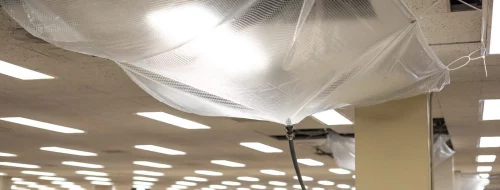Many individuals are currently experiencing the reality of how to provide and care for their aging parents. Children between the ages of 40 and 60 are currently handling kids of their own AND the added responsibility of providing regular care to an older parent. All while trying to keep their own career running smoothly and maintaining their financial stability.
Worrying about a parent can be incredibly stressful, but having a well-laid emergency plan can take some of the pressure off and allow individuals to put their minds at ease.
How to Create an Emergency Plan
An emergency plan consists of any instructions having to do with anything in case of environmental or medical emergencies to long-term care planning. Having a plan for these types of situations will take the guesswork out of a potential emergency and provides the exact wishes of the individual, leaving little decisions to the child.
1. Start by opening up the conversation with your parents.
This might be a difficult conversation, but keeping this open and honest is incredibly important. Other siblings and family members that are involved in decision making should be present as well. Talk about “what if” scenarios like:
- What if a fall occurs?
- What if an emergency happens and a telephone cannot be reached or the person cannot communicate verbally with emergency services?
- What if the home is hit with severe weather like a tornado, flood, etc.
- What if evacuation is needed?
These conversations start the process and begin to help you understand your parent’s wishes in the case of an emergency and how you can best follow them.
2. Decide on a plan of action that works for both parties.
Once the “what ifs” have been exhausted, a plan of action is created. This plan needs to be one that works for everyone, however, at the end of the day, the parents should have the most say in their living situation. Things to consider:
- They want to stay in their own home for as long as possible
- Stay near family
- Remain independent
- Stay as active as possible
- If needed, move to a smaller home
With these goals in mind, what has to happen to achieve them if needed? Look at financial situations, personal needs, transportation, and current living situations.
3. Build a checklist and put together important documents.
Keeping everything organized and in one central location makes it easier for anyone to locate them when needed. These are the documents to include in a binder:
- Birth certificates and social security cards
- Insurance cards – medical, dental, vision
- Address books including contact information for family and friends
- Wills and advance care instructions
- Medical information including doctor’s names and medications
- Funeral and burial instructions
Home Care
If your parents decide to stay in their homes for as long as possible, it is important to have an emergency plan in place in the event of fire or water damage. Should any disasters happen, escape plans are necessary, but what about cleaning and restoration once the worst is over?
At McMahon Services we deal with fire and water damage, as well as home restoration of all types. We’re ready to become part of the emergency response team for you and your family. Contact us for more information about our services.








0 Comments